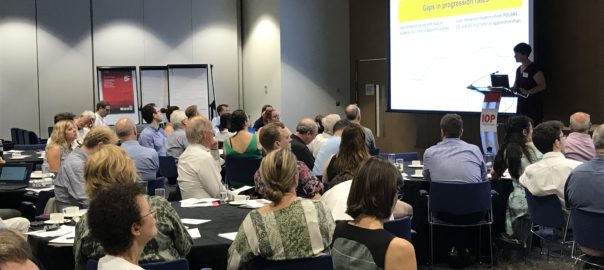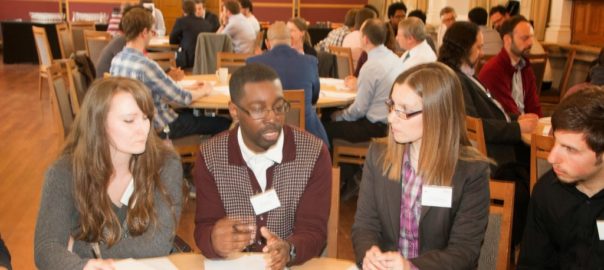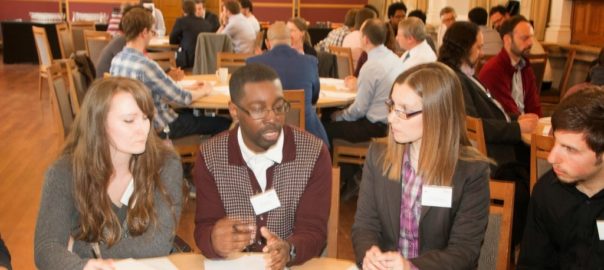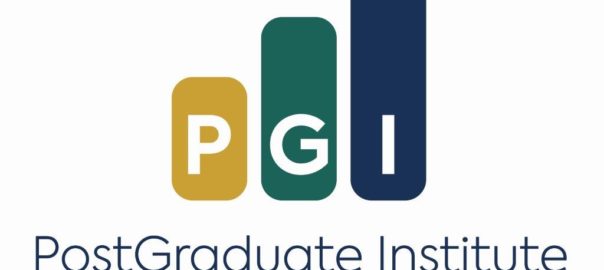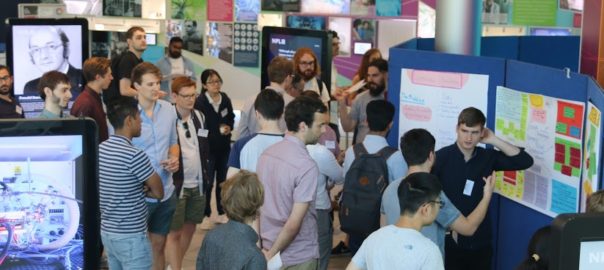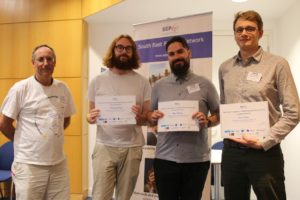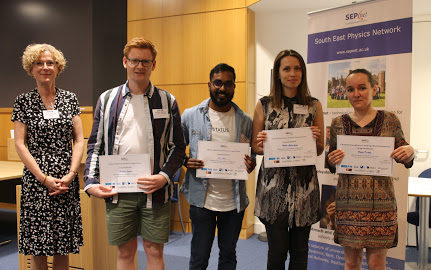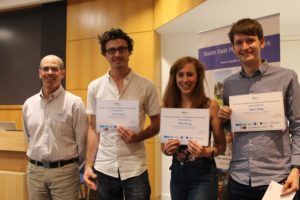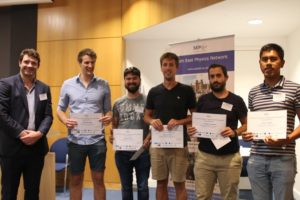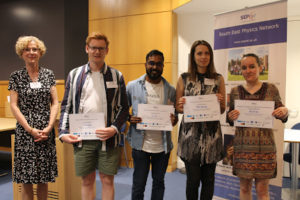A Queen Mary outreach project which takes physics research into schools has been nominated for a Times Higher Education Award 2019.
The School of Physics and Astronomy’s ‘Physics Research in School Environments’ (PRiSE) programme is shortlisted for the Widening Participation and Outreach Initiative of the Year for the event known as the ‘Oscars of higher education’.
The award will go to the most imaginative and innovative project that promotes diversity and encourages people from non-traditional backgrounds to enter higher education or extends the reach of the institution to new areas of activity.
PRiSE enables underrepresented students across London to experience cutting-edge particle and astrophysics through 6-month-long independent research projects.
As part of the programme students and teachers receive introductory workshops and school visits from researchers, helping them undertake a piece of research which they then present at a conference held at Queen Mary. Around 30 schools take part every year.
It has overwhelmingly built students’ confidence in science, developing skills not typically encountered within school, and has had lasting impacts on their physics and STEM (Science, Technology, Engineering and Maths) aspirations.
The programme has also resulted in a peer-reviewed paper, with student co-authors who successfully identified sounds caused by solar storm.
Dr Martin Archer, PRiSE project lead from Queen Mary’s School of Physics and Astronomy, said: “I have been developing PRiSE over the past five years and it’s been wonderful to not only see the long-term effects these projects are having on young people and their teachers. For this to be recognised nationally through the nomination is utterly fantastic”
PRiSE has developed teachers’ practice through the relationships forged with Queen Mary. As a result, teachers develop new lesson content, skills and mentoring; gain confidence in discussing research; and share students’ work raising their school’s STEM profile.
It is also informing the sector, with SEPnet and Ogden Trust adopting it into their strategies, Royal Society recommending it to their teacher network, and USA’s National Oceanic and Space Administration encouraging other researchers internationally to adopt it, with take-up from some universities already.
THE editor John Gill said: “I am delighted to say that the ‘Oscars of higher education’ go from strength to strength. With 23 categories this year, we’re also showcasing more exceptional stories than ever before, and it’s a real honour for us to shine a spotlight on all those who have made it as far as these shortlists – their stories deserve much wider circulation.”
These are the 15th annual THE Awards, and the first to feature a range of categories covering all university activity under one banner – excellence will be recognised both in academia and across the professional services.
The Awards ceremony is the biggest night of celebration in the UK HE calendar, and will take place at the Grosvenor House Hotel on Park Lane in London on Thursday 28 November 2019.
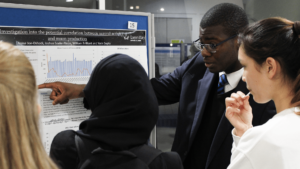
A student presents his poster at the PRiSE student conference

